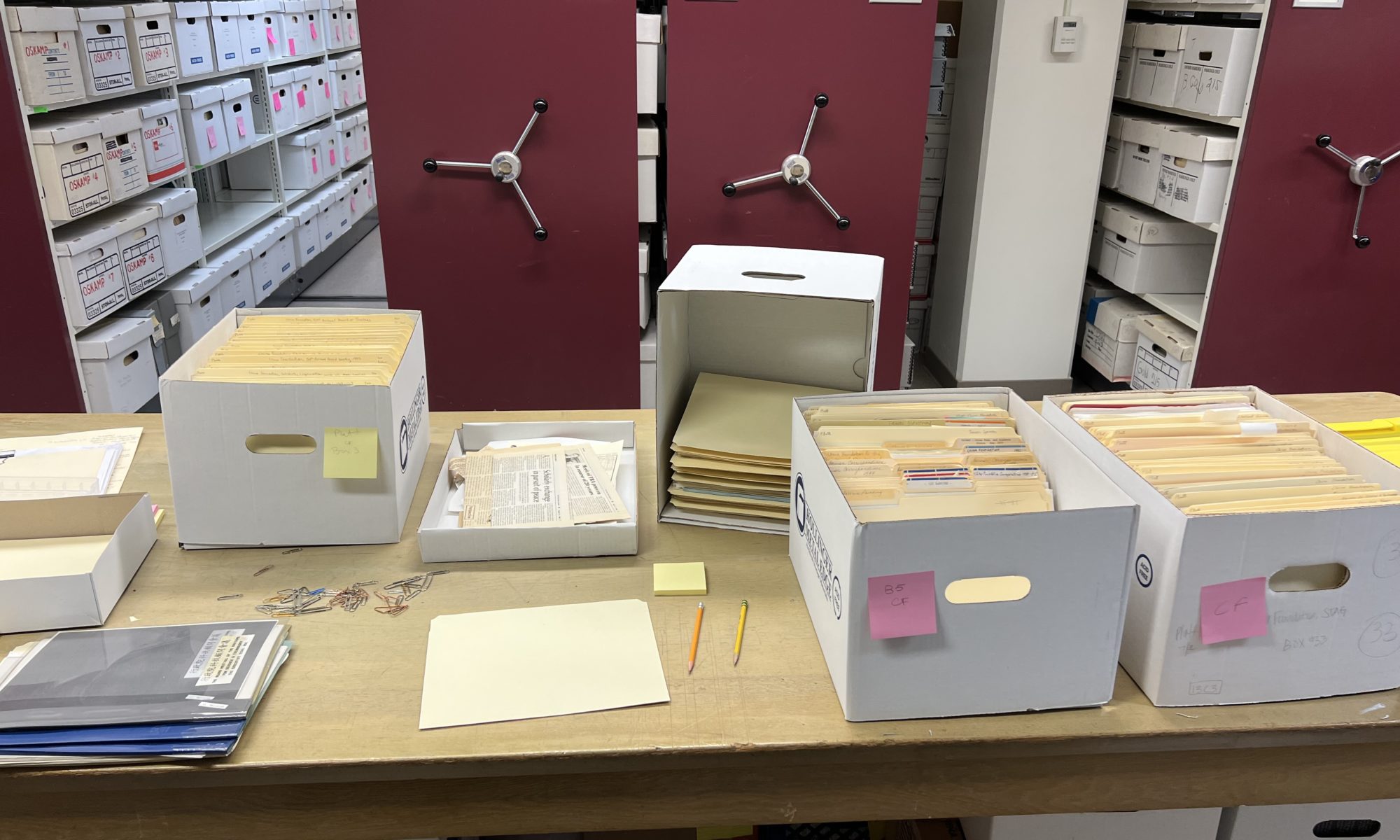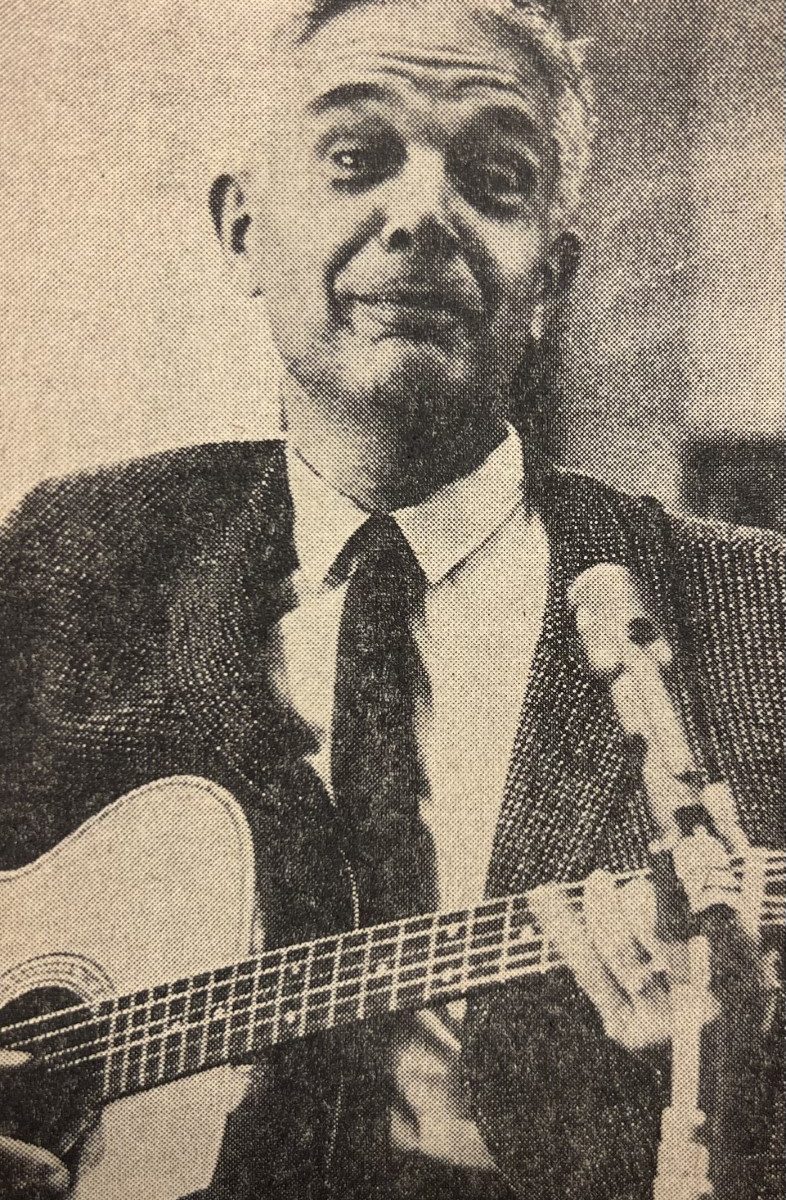As I was making my through a box of Harvey Mudd College ephemera, I came across a tattered envelope titled “Dedication.” The envelope contained an invitation to the dedication of the Harvey Mudd College Campus Center (and to a dinner meeting with Dr. Lee A. Dubridge) that would take place on Monday, November 25, 1963. The Campus Center, an “app-purpose center, which has 31,500 sq. ft. of floor space provides a dining hall, lounge and recreation areas,” was dedicated to Joseph B. Platt. In addition to the invitation, the envelope contained newspaper clippings documenting the event, letters written to Jean and Joe, a record of The Claremont Congregational Church’s Thanksgiving Service, a blueprint of the cornerstone with the words “Joseph B. Platt Campus Center 1963” to be engraved, and a group function order form among other things. For those of you wondering what was on the menu… lamb, mashed potatoes, green vegetables (peas), hot bread, and salad. YUM! Oh, and how could I forget… ice cream (sherbet) for dessert.
As I began reading the letters and newspaper articles I noticed a somber tone. Then it dawned on me. November 22, 1963 was the day that U.S. President John F. Kennedy was assassinated. The dedication was postponed until Monday, December 9, 1963. Several of the letters reflect on this tragedy. In his letter to Jean and Joe, Walter E. Hastings wrote, “I’m sure you had the pall of sadness in Claremont as we did in Rochester today. Almost all places of business were closed down and I have never seen such sadness on the faces of the people you met. These have been the three longest days of my life and I’m sure that it will [be] some little time before we recover from the shocks of the last 72 hours. I didn’t vote for him [(Walt scratched out the word him and inserted JFK)] but I realize now what a magnificent man he was.” People make misjudgments, but its not everyday that we admit and reflect on them. As we approach the holiday season and gather with friends and loved ones let’s not forget to practice intellectual, moral, and personal humility. Surely, we aren’t always right.
“To share your weakness is to make yourself vulnerable; to make yourself vulnerable is to show your strength.”
― Criss Jami
Until next time,
Tiara N. Yahnian-Murta

